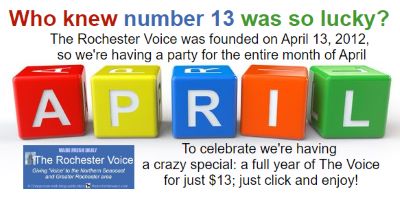With April being National Financial Literacy Month and WalletLiteracy Scores varying by 29% across the states, the personal-finance website WalletHub today released its report on the Most and Least Financially Literate States in 2024, which analyzes financial-education programs and consumer habits in each of the 50 states and the District of Columbia.
The study uses a data set of 17 key metrics, which range from high-school financial literacy grades to the share of adults with a rainy-day fund.
Financial Literacy in New Hampshire (1=Most Financially Literate, 25=Avg.):
- Overall Rank: 5th
- 4th - WalletHub's 'WalletLiteracy Survey' Score
- 22nd - % of Adults Aged 18+ Who Spend More than They Earn
- 19th - % of Adults Aged 18+ with Rainy-Day Funds
- 4th - % of Unbanked Households
- 16th - % of Adults Aged 18+ Paying Only Minimum on Credit Card(s)
- 8th - % of Adults Aged 18+ Who Compare Credit Cards Before Applying
For the full report, please visit:
https://wallethub.com/edu/most-and-least-financially-literate-states/3337
Expert Commentary
What should policymakers do to improve financial literacy?
"For starters, financial literacy education should be mandated for graduation. Ideally, the curriculum would be its own class, but it could also be included within another class or classes. In addition, policymakers can role model good fiscal behavior by being good stewards of taxpayer dollars. It would be terrible for those in power to take a do-as-I-say-not-as-I-do approach to fiscal responsibility."
Kelly Hunter Markson, Ph.D. - Senior Professor, Wake Technical Community College
"Financial literacy is a subject that needs to be taught, similar to any other subject taught in school. There are basic steps in understanding how to budget, save, earn, etc., and the right time to start is at the time when a child desires material items. Policymakers should encourage, if not require, financial literacy to be taught as a subject."
Jeffry Haber, PhD, CPA - Professor, Iona University
How can parents equip their kids with financial know-how?
"They can be good role models. Parents who stick to a budget and take responsibility for their decisions teach their children about priorities and values. For example, not getting the latest clothes and gadgets (phones, etc.) hurts when one is a teenager, but later, if this teenager graduates from college debt free because his/her parents prioritized education over keeping up with the Jones - that not only teaches an important lesson, but sets one's child up for success in his/her early earning years."
Kelly Hunter Markson, Ph.D. - Senior Professor, Wake Technical Community College
"Parents can help support any teaching that the schools provide, and if necessary, become the focal point for conveying financial literacy. Conveying financial literacy does not have to be an academic exercise in the home, but rather the 'lessons' come from behavior. When a child wants a toy, and it is not time for a gift (birthday, year-end holiday, etc.), it can be a teachable moment in saving. To accomplish this, the parent might have to set up situations where the child could earn money (for extra chores, etc.). This would teach that to get money you often have to perform work and get enough to purchase something you might have to save. Part of this learning process might include buyer's remorse. All important lessons are better learned when young."
Jeffry Haber, PhD, CPA - Professor, Iona University
What are some important tips for managing personal finances during the current economic environment with significant inflation?
"Most younger people today have never been exposed to high inflation rates. [In] high inflation periods, it's important to be a careful shopper and to make sure your investments are keeping up. When savings rates were near zero, leaving money sitting in checking accounts, Venmo, or PayPal had no opportunity cost. But today, when you can earn 4-5% on savings and CDs, your cash holdings are losing purchasing power."
Vickie Bajtelsmit - Professor Emerita, Colorado State University; author of Personal Finance, 3rd Ed. (2024, John Wiley and Sons)
"Live within your means. It's that simple. Don't spend money you don't have. Budget. Limit borrowing to a car loan, mortgage, and tuition for college (and consider less expensive alternatives like the community college). Consider buying used products. Have a rainy day account for emergencies. Take advantage of compound interest by investing in index equity funds for retirement."
Kelly Hunter Markson, Ph.D. - Senior Professor, Wake Technical Community College














